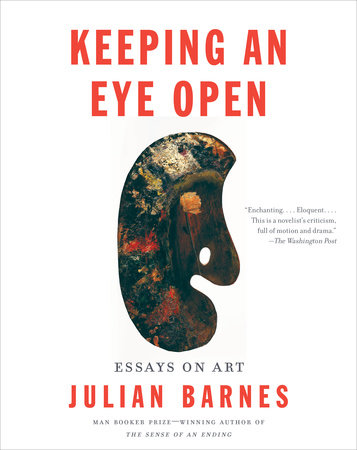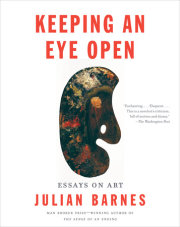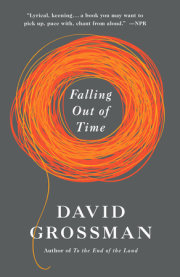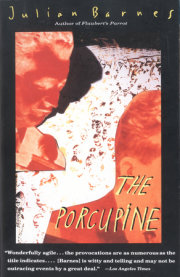Géricault: Catastrophe into Art
I
It began with a portent.
They had doubled Cape Finisterre and were sailing south before a fresh wind when a school of porpoises surrounded the frigate. Those on board crowded the poop and the breastwork, marvelling at the animals’ ability to circle a vessel already gaily proceeding at nine or ten knots. But as they watched the sporting of the porpoises, a cry was raised. A cabin boy had fallen through one of the fore portholes on the larboard side. A signal gun was fired, a life-raft thrown out, and the vessel hove to. But these manoeuvres were cumbrously done, and by the time the six-oared barge was let down, it was in vain. They could not find the raft, let alone the boy. He was only fifteen years old, and those who knew him maintained that he was a strong swimmer; they conjectured that he would most probably have reached the raft. If so, he doubtless perished upon it, after having experienced the most cruel sufferings.
The expedition for Senegal consisted of four vessels: a frigate, a corvette, a flute and a brig. It had set sail from the Island of Aix on 17th June 1816 with 365 people on board. Now it continued south with its complement reduced by one. They provisioned at Tenerife, taking on precious wines, oranges, lemons, banian figs and vegetables of all kinds. Here they noted the depravity of the local inhabitants: the women of Saint Croix stood at their doors and urged the Frenchmen to enter, confident that their husbands’ jealousies would be cured by the monks of the Inquisition who would speak disapprovingly of conjugal mania as the blinding gift of Satan. Reflective passengers ascribed such behaviour to the southern sun, whose power, it is known, weakens both natural and moral bonds.
From Tenerife they sailed south-south-west. Fresh winds and navigational ineptitude scattered the flotilla. Alone, the frigate passed the tropic and rounded Cape Barbas. It was running close to the shore, at times no more than half a cannon shot away. The sea was strewn with rocks; brigantines could not frequent these seas at low water. They had doubled Cape Blanco, or so they believed, when they found themselves in shallows; the lead was cast every half-hour. At daybreak Mr. Maudet, ensign of the watch, made out the reckoning upon a chicken coop, and judged that they were on the edge of the Arguin reef. His advice was discounted. But even those unschooled in the sea could observe that the water had changed colour; weed was apparent at the ship’s side, and a great many fish were being taken. In calm seas and clear weather, they were running aground. The lead announced eighteen fathoms, then shortly afterwards six fathoms. The frigate, luffing, almost immediately gave a heel; a second and third, then stopped. The sounding line showed a depth of five metres and sixty centimetres.
By misfortune, they had struck the reef at high tide; and the seas growing violent, attempts to free the ship failed. The frigate was assuredly lost. Since the boats it carried were not capacious enough to contain the whole personnel, it was decided to build a raft and embark upon it those who could not be put into the boats. The raft would then be towed to the shore and all would be saved. This plan was perfectly well laid; but as two of the company were later to affirm, it was traced upon loose sand, which was dispersed by the breath of egotism.
The raft was made, and well made, places in the boats allotted, provisions made ready. At daybreak, with two metres and seventy centimetres of water in the hold and the pumps failing, the order was given to abandon ship. Yet disorder quickly embraced the well-laid plan. The allotment of places was ignored, and the provisions were carelessly handled, forgotten or lost in the waters. One hundred and fifty was to be the complement of the raft: 120 soldiers, including officers, twenty-nine sailors and male passengers, one woman. But scarcely had fifty men got on board this machine—whose extent was twenty metres in length and seven in breadth—than it sank under the water to a depth of at least seventy centimetres. They cast off the barrels of flour which had been embarked, whereupon the level of the raft rose; the remaining people descended upon it, and it sank again. When the machine was fully laden, it was a metre beneath the surface, and those on board so crowded they could not take a single step; at the back and front, they were in water up to the waist. Loose flour barrels were cast against them by the waves; a twenty-five-pound bag of biscuit was thrown down to them, which the water converted at once into a paste.
It had been intended that one of the naval officers should take command of the raft; but this officer declined to come on board. At seven o’clock in the morning the signal for departure was given, and the little flotilla pulled away from the abandoned frigate. Seventeen persons had refused to leave the vessel, or had concealed themselves away, and thus remained on board to discover their fate.
The raft was towed by four boats in line astern, preceded by a pinnace, which made soundings. As the boats took up their positions, cries of Vive le roi! arose from the men on the raft, and a small white flag was raised upon the end of a musket. But it was at this instant of greatest hope and expectation for those upon the raft that the breath of egotism was added to the normal winds of the sea. One by one, whether for reason of self-interest, incompetence, misfortune or seeming necessity, the tow-ropes were cast aside.
The raft was barely two leagues from the frigate when it was abandoned. Those on board had wine, a little brandy, some water and a small portion of sodden biscuit. They had been given no compass or chart. With neither oars nor rudder, there was no means of controlling the raft, and little means either of controlling those upon it, who were constantly flung against one another as the waters rolled over them. In the first night, a storm got up and threw the machine with great violence; the cries of those on board mingled with the roaring of the billows. Some attached ropes to the timbers of the craft, and held fast to these; all were buffeted without mercy. By daybreak the air was filled with lamentable cries; vows which could never be fulfilled were offered up to Heaven, and all prepared themselves for imminent death. It was impossible to form an idea of that first night which was not below the truth.
The next day the seas were calm, and for many hope was rekindled. Nevertheless, two young lads and a baker, convinced that there was no escape from death, bade farewell to their companions and willingly embraced the sea. It was during this day that those on the raft began to experience their first delusions. Some fancied that they saw land, others espied vessels come to save them, and the dashing of these deceptive hopes upon the rocks provoked greater despondency.
The second night was more terrible than the first. The seas were mountainous and the raft constantly near to being overthrown; the officers, clustered by the short mast, ordered the soldiery from one side of the machine to the other to counterbalance the energy of the waves. A group of men, certain that they were lost, broke open a cask of wine and resolved to soothe their last moments by abandoning the power of reason; in which they succeeded, until the sea water coming in through the hole they had made in the cask spoiled the wine. Thus doubly maddened, these disordered men determined to send all to a common destruction, and to this end attacked the ropes that bound the raft together. The mutineers being resisted, a pitched battle took place amid the waves and the darkness of the night. Order was restored, and there was an hour of tranquillity upon that fatal machine. But at midnight the soldiery rose again and attacked their superiors with knives and sabres; those without weapons were so deranged that they attempted to tear at the officers with their teeth, and many bites were endured. Men were thrown into the sea, bludgeoned, stabbed; two barrels of wine were thrown overboard and the last of the water. By the time the villains were subdued, the raft was laden with corpses.
During the first uprising, a workman by the name of Dominique, who had joined the mutineers, was cast into the sea. On hearing the piteous cries of this treacherous underling, the engineer in charge of the workmen threw himself into the water and, taking the villain by the hair, succeeded in dragging him back on board. Dominique’s head had been split open by a sabre. In the darkness the wound was bound up and the wretch restored to life. But no sooner was he so revived than ingratitude overtook him; he joined the mutineers and rose with them again. This time he found less fortune and less mercy; he perished that night.
Delirium now menaced the unhappy survivors. Some threw themselves into the sea; some fell into torpor; some unfortunate wretches rushed at their comrades with sabres drawn, demanding to be given the wing of a chicken. The engineer whose bravery had saved the workman Dominique pictured himself travelling the fine plains of Italy, and one of the officers saying to him, “I remember that we have been deserted by the boats; but fear nothing; I have just written to the governor, and in a few hours we will be saved.” The engineer, calm in his delirium, responded thus: “Have you a pigeon to carry your orders with as much celerity?”
Only one cask of wine remained for the sixty still on board the raft. They collected tags from the soldiers and fashioned them into fish-hooks; they took a bayonet and bent it into such shape as to catch a shark. Whereupon a shark arrived, and seized the bayonet, and with a savage twist of its jaw straightened it fully out again, and swam away.
An extreme resource proved necessary to prolong their miserable existence. Some of those who had survived the night of the mutiny fell upon the corpses and hacked pieces from them, devouring the flesh upon the instant. Most of the officers refused this meat; though one proposed that it should first be dried to make it more palatable. Some tried chewing sword-belts and cartouche boxes, and the leather trimmings to their hats, with little benefit. One sailor attempted to eat his own excrement, but he could not succeed.
The third day was calm and fine. They took repose, but cruel dreams added to the horrors already inflicted by hunger and thirst. The raft, which now carried less than one half its original complement, had risen up in the water, an unforeseen benefit of the night’s mutinies. Yet those on board remained in water to the knees, and could only repose standing up, pressed against one another in a solid mass. On the fourth morning they perceived that a dozen of their fellows had died in the night; the bodies were given to the sea, except for one that was reserved against their hunger. At four o’clock that afternoon a shoal of flying fish passed over the raft, and many became ensnared in the extremities of the machine. That night they dressed the fish, but their hunger was so great and each portion so exiguous that many of them added human flesh to the fish, and the flesh being dressed was found less repugnant. Even the officers began to eat it when presented in this form.
It was from this day onwards that all learned to consume human flesh. The next night was to bring a fresh supply. Some Spaniards, Italians and Negroes, who had remained neutral during the first mutinies, conspired together with the plan of throwing their superiors overboard and escaping to the shore, which they believed to be at hand, with those valuables and possessions that had been placed into a bag and hung upon the mast. Once more, a terrible combat ensued, and blood washed over the fatal raft. When this third mutiny was finally suppressed, there remained no more than thirty on board, and the raft had risen yet again in the water. Barely a man lay without wounds, into which salt water constantly flowed, and piercing cries were heard.
On the seventh day two soldiers concealed themselves behind the last barrel of wine. They struck a hole in it and began to drink the wine through a straw. On being discovered, the two trespassers were instantly cast into the water, in accordance with the necessary law that had been promulgated.
It was now that the most terrible decision came to be taken. On counting their numbers, it was found that they were twenty-seven. Fifteen of these were likely to live for some days; the rest, suffering from large wounds and many of them delirious, had but the smallest chance of survival. In the time that might elapse before their deaths, however, they would surely diminish further the limited supply of provisions. It was calculated that they could well drink between them as many as thirty or forty bottles of wine. To put the sick on half-allowance was to kill them by degrees. And thus, after a debate in which the most dreadful despair presided, it was agreed among the fifteen healthy persons that their sick comrades must, for the common good of those who might yet survive, be cast into the sea. Three sailors and a soldier, their hearts now hardened by the constant sight of death, performed these repugnant but necessary executions. The healthy were separated from the unhealthy like the clean from the unclean.
After this cruel sacrifice, the last fifteen survivors threw all their arms into the water, reserving only a sabre lest some rope or wood might need cutting. There was sustenance left for six days while they awaited death.
Then came a small event which each interpreted according to his nature. A white butterfly, of a species common in France, appeared over their heads fluttering, and settled upon the sail. To some, crazed with hunger, it seemed that even this could make a morsel. To others, the ease with which their visitor moved appeared a very mockery of those who lay exhausted and almost motionless beneath it. To yet others, this simple butterfly was a sign, a messenger from Heaven as white as Noah’s dove. Even those sceptical ones who declined to recognise a divine instrument knew that butterflies travel little distance from the dry land, and were raised by cautious hope.
Copyright © 2015 by Julian Barnes. All rights reserved. No part of this excerpt may be reproduced or reprinted without permission in writing from the publisher.






















































































































